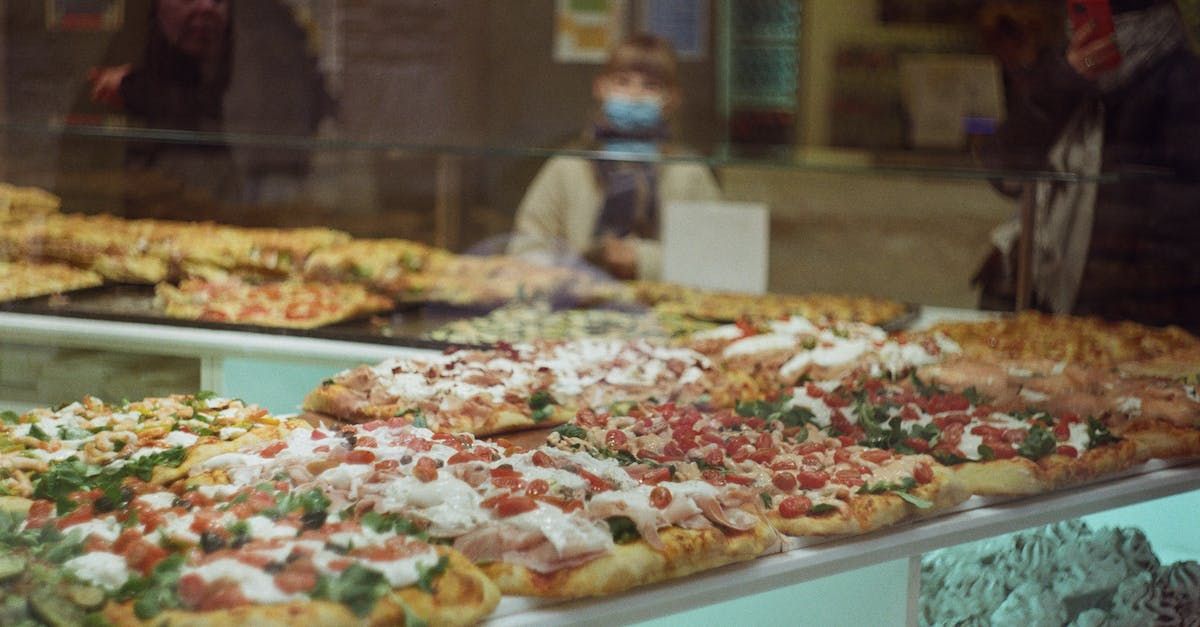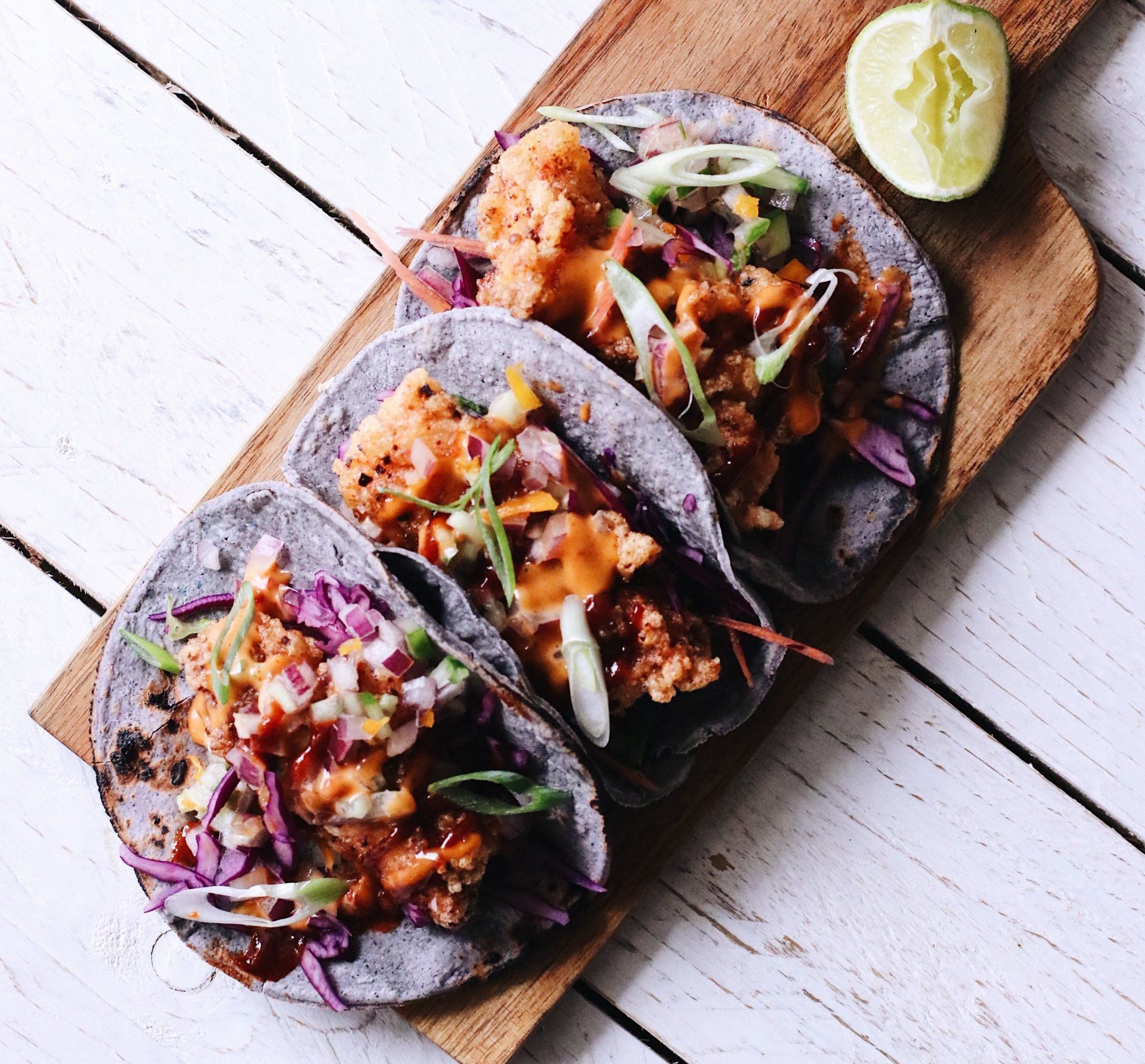WHAT IS A FOOD TOUR?
Food, history and culture all in one amazing experience
Have you ever visited a new city, wanting to uncover its authentic flavors and culinary secrets? If so, a food tour might be the perfect experience for you! If you've landed on this article you're probably wanting to know what is a food tour or what is a foodie tour or even what is a restaurant tour. Well in this comprehensive guide, we'll explore the enticing world of food tours, unveiling their essence, the experiences they offer, and why they have become a must-do activity for foodies.
What is a food tour and why should you experience culinary tourism?
Food is the best way to experience the culture of a new city, but with so much to choose from it can be hard to find the best places to eat. That’s where a food tour can help.
So what is a food tour exactly? A food tour is a guided experience led by a food tour guide, where you will have the opportunity to explore a neighborhood and stop at different restaurants to sample their specialties. It's a fun way to taste local cuisine all while learning about the local culture and history behind the dishes.
Picture this: you're strolling through the charming streets of a vibrant new city, led by a knowledgeable local food tour guide who shares fascinating tales and insights about the area's food traditions. At each stop, you're treated to a delectable array of dishes and drinks, carefully curated to showcase the essence of the local cuisine. From locally-sourced produce, to trying a city's classic staple, and specialty dishes, a food tour offers a tantalizing glimpse into the soul of a city's gastronomic culture.
The Benefits Of A Walking Food Tour
Culinary travel and taking a walking food tour offer a great range of benefits that extend far beyond satisfying your taste buds. Here are just a few reasons why you should consider embarking on this delectable journey:
Authentic Culinary Experience
Food travel tours are meticulously designed to introduce you to the authentic flavors and hidden gems that only locals truly know about. By venturing off the beaten path and exploring the city's lesser-known restaurants and food spots, you'll have the opportunity to savor dishes and delicacies that might otherwise remain undiscovered by the average tourist. On a food tour, you will often have the opportunity to visit local food markets, try a mix of food, meet locals, try some artisan products, and overall just have an authentic experience in a new city.
Cultural Immersion and Education
Food is intrinsically woven into the fabric of a city's culture and history. Through a food tour, you'll gain invaluable insights into the traditions, customs, and stories behind the dishes you're tasting experiences. Your knowledgeable guide will share captivating tales about the origins of each dish, the ingredients used, and the significance they hold in the local community.
Insider Tips and Local Connections
One of the greatest advantages of joining one of the culinary travel tours is the opportunity to tap into the insider knowledge of your guide. As a local expert, they can share their favorite spots, recommend hidden gems, share some culinary storytelling and even introduce you to the passionate chefs, artisans, and vendors behind the delectable creations you'll be sampling.
Sustainable Tourism and Community Support
Food tourism and food tour companies prioritize supporting local businesses and promoting sustainable tourism practices. By participating in a food tour, you'll be contributing to the economic vitality of the community while fostering a deeper appreciation for the local culture and its culinary traditions.

How to choose the right food tour
With a vast array of food tours available in cities around the world, choosing the right one can be a daunting task. To ensure you have an unforgettable experience, consider the following factors when selecting your food tour:
Location and Neighborhood Focus
Opt for a food tour that explores a specific neighborhood or district renowned for its culinary tourism offerings. Whether you're interested in sampling street food in bustling food markets, indulging in fine dining experiences or you want to try local seafood options, choosing a tour that focuses on an area known for its gastronomic delights can enhance your overall experience.
Duration and Number of Stops
A group tour can vary in length and the number of food tastings experiences included on the tour. When looking at different walking food tour options you should consider your preferences and how much time you're willing to dedicate to the experience. If you prefer a leisurely pace with fewer stops, opt for a longer tour; if you want to sample a wide variety of dishes, a tour with multiple quick stops might be more suitable.
Dietary Restrictions and Preferences
Many food tour operators cater to various dietary needs, such as vegetarian, vegan, gluten-free, or other specific requirements. When booking your tour, inquire about their ability to accommodate your dietary preferences to ensure you can fully enjoy the culinary tourism experience.
Group Size and Personalization
Decide whether you prefer a private, intimate tour or a larger group setting. Private tours offer a more personalized experience, while larger groups can be more social and provide opportunities to connect with fellow food enthusiasts.
Language and Cultural Considerations
If you're an international traveler, consider selecting a food tour that offers multilingual guides. This can help bridge any language barriers and ensure you fully understand the cultural context and significance behind each dish.

What types of food tours are there?
Food tours come in various forms, catering to different preferences and culinary interests. Here are some of the most popular culinary tourism examples you have available:
Neighborhood Food Tours
These tours take you on a gastronomic journey through a specific neighborhood or district, allowing you to sample the local flavors and learn about the area's culinary heritage. From trendy hotspots to historic enclaves, neighborhood food tours offer a unique perspective on a city's food scene.
Street Food Tours
For those seeking an authentic taste of a city's street food culture and want to experience more ethnic neighborhoods, street food tours are a must-try experience. These tours guide you through bustling markets, food stalls, and local haunts, where you can indulge in the vibrant flavors and traditions of street cuisine.
Fine Dining Food Tours
If you're a connoisseur of upscale dining experiences, fine dining food tours might be the perfect choice. These tours take you to renowned restaurants and exclusive establishments, offering a taste of a city's culinary sophistication and innovative culinary techniques.
Themed Food Tours
From wine and cheese pairings to chocolate-focused tours, themed food tours cater to specific culinary tourism interests and passions. Whether you're a wine enthusiast, a chocolate lover, or simply seeking a unique gastronomic experience, themed tours offer a specialized and immersive journey.
Regional or Cultural Food Tours
Explore the diverse culinary traditions of a region or culture through these specialized food tours. From the vibrant flavors of Mexican cuisine to the rich heritage of Italian gastronomy, these tours offer an in-depth exploration of a specific culinary tradition.
Beer and Wine Tours
For those looking for an experience that involves alcohol then you should consider finding a beer, wine, and liquor tour. These are a specific type of walking tour or bus tour that will take you to local breweries, wineries, distilleries, and bars, where you can sample a variety of beverages and learn about the art of crafting and pairing drinks. Whether you want to experience beer tasting tours, wine tours, or go behind the scenes and see how local business owners make their specialty drinks, a beer, wine, and liquor tour could be the right option.
The Role of a Knowledgeable Food Tour Guide
One of the key elements that elevate a food tour from a mere tasting experience to an unforgettable culinary journey is the presence of knowledgeable and passionate guides. These local experts play a pivotal role in curating an authentic and immersive experience, sharing their insights and stories in a way that brings the food to life.
Sharing Cultural Narratives and Personal Anecdotes
Knowledgeable guides possess a deep understanding of the local culture and traditions, which they artfully weave into the food tour experience. Through captivating narratives and personal anecdotes, they provide valuable context about the dishes you taste, their historical significance, and their cultural importance. By sharing their own experiences and connections to the food, these guides create a profound connection between the flavors and the community they represent.
Unlocking Exclusive Opportunities and Hidden Gems
Leveraging their expertise and connections within the culinary community, knowledgeable guides can offer exclusive opportunities and access to hidden gems that would be challenging to discover on your own. From behind-the-scenes encounters with renowned chefs to private tastings at family-owned establishments, these unique experiences allow you to delve deeper into the city's gastronomic scene and uncover its well-guarded secrets.
Immersive Culinary Activities and Demonstrations
Some food tours go beyond mere tastings and offer immersive culinary activities and demonstrations that enhance the educational value of the experience. You might have the opportunity to participate in hands-on cooking classes led by talented chefs, where you'll learn traditional cooking techniques and gain insights into local ingredients. Alternatively, you might witness the craftsmanship behind artisanal food production, such as watching cheese being made at a dairy farm or observing bakers kneading dough for freshly baked bread.
Fostering Connections with Local Culinary Artisans
One of the greatest advantages of having a knowledgeable guide is their ability to foster connections with local chefs, restaurant owners, and food vendors. These connections often lead to special treatment, such as priority seating or exclusive tastings at renowned establishments. By introducing you to the passionate individuals behind the food, guides create a sense of community and allow you to experience the city's culinary scene like a true insider. Through their expertise, passion, and personal connections, knowledgeable guides ensure that your food tour is not just about tasting delicious food but also about gaining a deeper understanding of the local culture and forging meaningful connections with the community.

Food Tours for Every Traveler and Occasion
Food tours are not limited to a specific type of traveler or occasion. Whether you're a solo adventurer, part of a group, traveling with family, a dedicated foodie, or a professional in the culinary industry, there is a food tour designed to cater to your specific interests and preferences.
Solo Travelers and Small Groups
For solo travelers, food tours offer the perfect opportunity to join a culinary community, even if just for a few hours. It's a chance to connect with like-minded explorers from around the world and bond over shared culinary experiences. The intimate nature of food tours allows solo travelers to feel comfortable and welcomed in a new city, making new friends along the way.
Food tours are also an excellent option for small groups of friends or families seeking a shared experience. It's an opportunity to create lasting memories together while exploring the local food scene. Many food tour operators offer family-friendly elements, such as special menus or discounts for children, ensuring that everyone can enjoy the experience.
Dedicated Food Enthusiasts and Culinary Professionals
Dedicated food enthusiasts and culinary professionals are drawn to specialized food tours that focus on specific cuisines, culinary techniques, or gastronomic themes. These tours cater to those who have a deep passion for food and want to immerse themselves in its rich flavors and cultural significance.
From chocolate tasting tours and wine and cheese pairings to behind-the-scenes experiences with renowned chefs, there is a food tour out there that will satisfy even the most discerning palate. For culinary professionals, such as chefs or sommeliers, food tours offer a unique opportunity to gain inspiration, discover new flavors, and expand their culinary horizons.
The Impact of Food Tours
Food tours play a significant role in preserving local culinary traditions, supporting sustainable tourism practices, and fostering economic vitality within communities. By examining the responsible practices embraced by reputable tour operators, we can uncover the ways in which food tours contribute to the preservation of a destination's local heritage.
Preserving Culinary Traditions and Cultural Practices
Food tours are instrumental in keeping local culinary traditions and cultural practices alive. By showcasing traditional dishes, cooking methods, and the stories behind local cuisines, these tours help to preserve and celebrate a region's gastronomic heritage. For example, in cities like New Orleans, food tours featuring Creole and Cajun cuisines not only introduce participants to delicious flavors but also educate them about the historical and cultural significance of iconic dishes like gumbo and jambalaya.
Stimulating Economic Growth and Supporting Local Businesses
Food tourism activities play a crucial role in stimulating economic growth by driving business to local eateries, markets, and food producers. Through these tours, participants directly contribute to the success of small businesses while gaining insight into the authentic flavors of a region. In cities like San Francisco, food tours often include visits to farmers' markets and artisanal food shops, fostering connections between tour participants and local producers while boosting sales for these businesses.
Promoting Sustainability and Community Empowerment
Reputable food tour operators prioritize sustainability and community empowerment through initiatives that support local producers. By forming partnerships with small-scale farmers, fishermen, and artisans, these tours promote ethical consumption while ensuring fair compensation for producers.
For instance, in cities like Barcelona, some food tours collaborate with organic wineries and family-owned olive oil mills to offer participants a taste of sustainable agriculture practices while providing financial support to these eco-friendly businesses. By engaging in responsible food tourism practices and supporting local communities, participants can contribute to the long-term preservation of culinary traditions while driving positive economic impacts within the destinations they visit.
Conclusion
Food tours offer a gateway to discovering the authentic flavors and stories that make each city's culinary scene truly special. They provide an immersive experience that goes beyond just tasting food, allowing participants to connect with the local culture and history through their taste buds.
So, whether you're a seasoned foodie or a curious traveler seeking authentic experiences, let your next adventure be a flavorful one. Embark on a food tour and uncover the culinary secrets of your chosen city, one delectable bite at a time.
If you're visiting New York City and want to know how to do a food tour or how to plan a food tour come and talk to us. Here at Tasty Tours NYC we pride ourselves not only on offering the best food tours in New York City but also some of the best food tours in the world. Book a tour with us today and we guarantee you will have an amazing experience.

